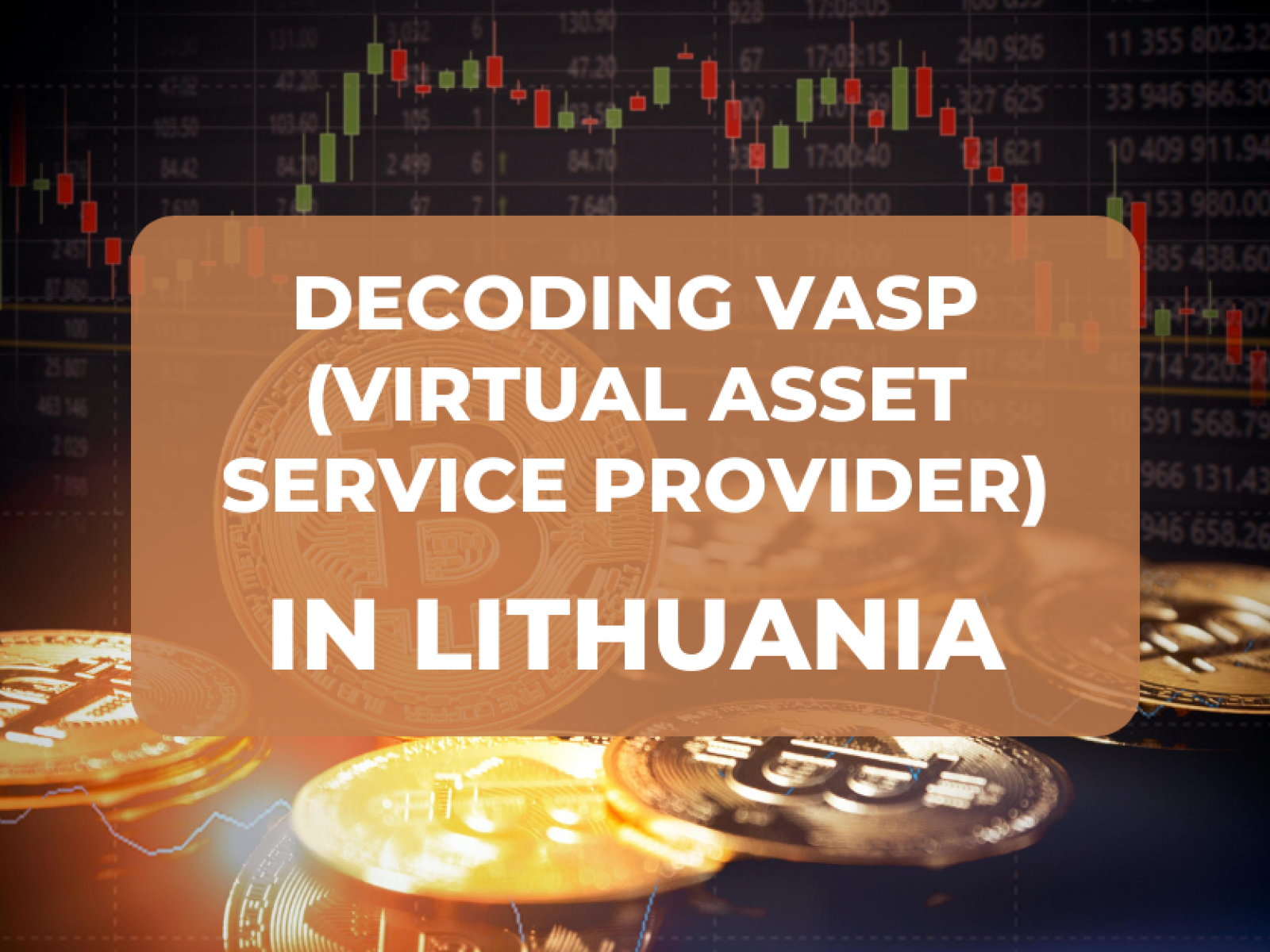Decoding VASP In Lithuania: Unraveling the Role and Impact of Virtual Asset Service Providers
2024 01 18Lithuania has become one of the most popular jurisdictions for financial start-ups amidst the growing prominence of the fintech landscape. Compared to its neighboring countries, Lithuania offers more flexible regulations for activities related to virtual asset services.
But how do VASPs work in Lithuania? In this article, we will dive deeper into the concept of VASP and what it means in the Lithuanian context.
What is VASP?
Virtual Asset Service Providers (VASPs) are entities that provide services involving virtual assets, including cryptocurrencies like Bitcoin and Ethereum.
The term gained prominence in the context of anti-money laundering (AML) and counter-terrorist financing (CTF) regulations.
Financial regulators and authorities in various jurisdictions have been working to establish frameworks to oversee and regulate VASPs to ensure that these entities comply with legal and regulatory requirements.
The Financial Action Task Force (FATF) also defines VASP as a business conducting one or more of the following activities with another party:
There are several examples of VASPs based on these activities, including:
VASP regulations in Lithuania
In January 2020, Lithuania adopted new amendments to its AML/CFT regulation which includes various VASPs like crypto exchanges, exchangers, and persons conducting an initial coin offering (ICO).
The Financial Crime Investigation Service (FCIS), which regulates VASP activities in Lithuania, also updated its definition of obligated entities under the Law in 2022. This update covers the registration and operating conditions for providers of services related to crypto assets.
The authorization for VASP in Lithuania covers crypto exchange services and crypto wallet operators. A single company can obtain authorizations for both types of activity.
Despite the common use of the term "license" to describe the regulatory capabilities, Lithuania's regulatory framework offers an activity registration for operating as a regulated VASP rather than a traditional financial license.
Additionally, the EU is expected to adopt the new Markets in Crypto-Assets (MiCA) regulation in 2024. It’s expected to standardize the requirements concerning the authorization and governance of VASPs across all EU member states.
This regulation will change how VASPs operate in Lithuania and subject them to several organizational requirements.
It involves key points like establishing robust internal controls and risk assessment mechanisms in the company and ensuring that the staff possesses the necessary skills and expertise to manage virtual currency.
How to get a crypto license in Lithuania?
There are several requirements you need to fulfill to set up a crypto license in Lithuania for VASP. Let’s take a look at the requirements for a VASP Lithuania entity:
Benefits of getting the Lithuanian crypto license
Setting up a fintech start-up in Lithuania comes with plenty of benefits, considering its reputation as the capital of financial innovation in the EU.
Companies that apply for the Lithuanian VASP registration only need to wait between 30 and 45 days on average. The authorization process can be done remotely with no physical visit to Lithuania, which makes it efficient.
Organizations like the Virtual Asset Service Provider Association Lithuania also help make the state more fintech-friendly.
Companies can leverage the network provided by the VSAP Association to learn more about regulations and compliance and how to navigate the dynamic environment.
Lithuania’s Central Bank also actively supports financial technology and non-bank payment services, positioning the country as an attractive destination for companies aiming to engage in the virtual currency market.
Moreover, obtaining a cryptocurrency license in Lithuania comes at a significantly lower cost compared to other jurisdictions known for their cryptocurrency-friendly policies.
Conclusion
Lithuania has evolved into the perfect jurisdiction for fintech companies, thanks to its forward-thinking regulatory environment, particularly in the realm of Virtual Asset Service Providers.
The Lithuanian crypto license, obtained through a straightforward process, offers not only regulatory approval but also the backing of the Central Bank and support from organizations like the Virtual Asset Service Provider Association Lithuania.
With lower operational costs and a supportive ecosystem, Lithuania stands as a beacon for those venturing into the dynamic landscape of virtual currency markets, especially in the EU.

